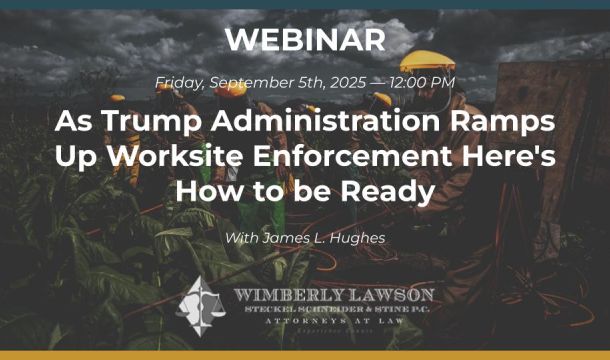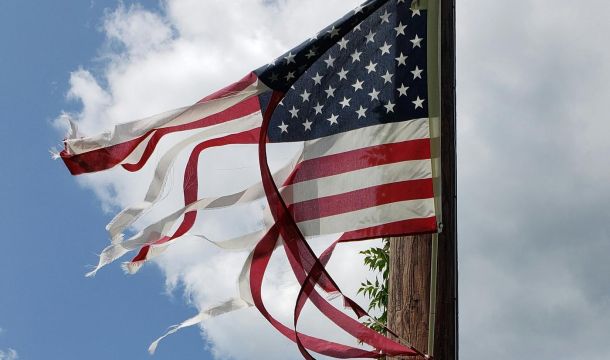Big labor is flexing its muscles, and the nation should be concerned. While the most pro-union President in history touts organized labor as good national policy, the effects of this policy show the dangers. Let's look at actions over the last few months as large parts of our national economy were almost shut down over a potential dock workers strike, a potential railroad workers strike last December, and a potential strike at United Parcel Service (UPS) in July. Although UPS and the Teamsters reached a tentative contract on July 25, which was praised by President Biden, the results are that by the end of the five-year contract, full-time drivers will make about $170,000 a year, counting healthcare and other benefits. It puts compensation for UPS drivers well above the median salary for a U.S. engineer, and above the pay of many executives.
Further, the UPS contract could encourage other unions to become more militant in other contracts. The pilot's union at American Airlines received up to a 40% pay increase in their new deal with the airline earlier this summer. The FedEx pilots recently rejected an increase of up to 30%. In the recent auto workers negotiations which have just started, the UAW leader refused to even have a handshake ceremony with company executives, stating: "I'm not shaking hands with any CEOs until they do right by our members." UAW proposals would increase hourly labor costs to more than $150.00 per hour, including wages and benefits, doubling current hourly labor costs. UAW is demanding a 46% wage increase and many others costly benefit changes. In contrast, the assembly plants of Asian and European automakers pay something around $50.00 an hour. Unions are playing hardball and getting away with it, but longer term results may tell a different story.
At the same time, strikes are increasing. Strike activity increased by almost 50% in 2022. This writer submits that strikes are bad for the economy, bad for employers, and bad for the workers that lose their paychecks during the strikes, in amounts they may never make up.
President Biden hailed the UPS settlement as wonderful for the workers and wonderful for the economy. Let's look below the surface. These high-cost settlements will result in more automation, more outsourcing to lower-paying contractors, and more unemployment as buyers shift to lower-cost producers. The portion of U.S. private-sector workers belonging to a union in 2022 is only 6%, the lowest percentage on record going back to 1900. Management often will cite unproductive and costly strikes as a reason not to unionize. Such costly contracts can also result in putting companies out of business with resulting unemployed workers. In August, the traditionally largest trucking company, Yellow Corp., closed its doors, leaving its 30,000 employees jobless. The company blamed its collapse on the Teamsters union, and a company official claimed the union refused to help management revitalize the long-struggling business. The chief executive officer said the financial problems were caused by the union's "bullying and deliberately destructive tactics." Another Yellow official accused the union of using the company "as a sacrificial lamb" and said the Teamsters chief would rather "see Yellow destroyed than be perceived as weak in negotiations."
There are some new tactics being used in the current labor disputes and strikes. One of them is technology, including the use by unions of mass video calls and spreading the word through Twitter, Instagram, Reddit, and online message boards for union members. Other recent tactics used by the Teamsters is the "practice strike," in which employees conduct "practice picketing" to show management that they mean business.
A more recent example of the pro-union Administration is a new Davis-Bacon Act rule for federal contractors that requires contractors to pay prevailing wages. Prevailing wages will be considered to be any single rate that is 30% of the workers in job classifications in a geographic area, which often tends to be the union contract rate, particularly in the way the surveys are conducted. This means that a non-union construction company would have to pay union wages to get a contract at a particular federal project, and indeed may have to be "union" on that project under the project labor agreement concept encouraged by the Administration. These efforts may benefit union labor, but what about the 90% of the construction industry that is non-union? Similarly, the Administration praises the big labor pay settlements, but at the same time promotes lower wage gains as part of the fight against inflation. The Kiplinger Letter remarked in August that whether the Fed raises interest rates again in September hinges largely on wage increases.
This article is part of our September 2023 Newsletter.
View newsletter online
Download the newsletter as a PDF
Related Content
Get Email Updates

Resolving Conflict Between Religious Expression and the Civil Rights of Others

Department of Homeland Security (DHS) is Terminating Family Reunification Parole (FRP) Processes

DHS is Terminating Temporary Protected Status for Ethiopia

Issues Regarding Employee Access to Their Personnel Files

Issues of Employer Access to Employees’ Personal Devices Such as Cell Phones, Etc




